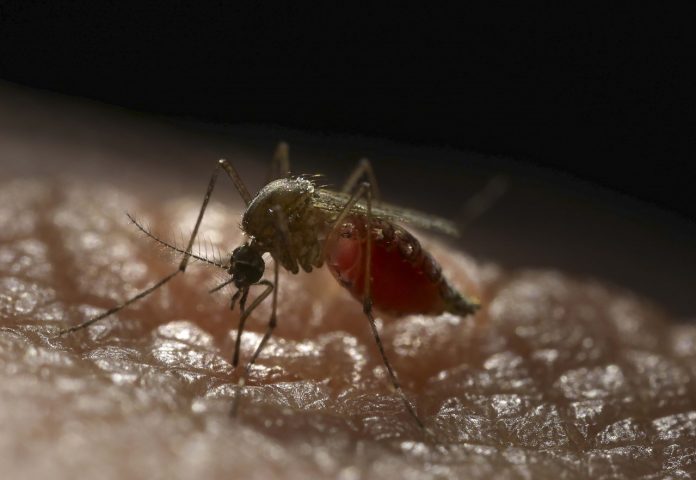An international team of scientists has synthetically engineered mosquitoes that halt the transmission of the dengue virus.
Led by biologists at the University of California San Diego, the research team describes details of the achievement in Aedes aegypti mosquitoes, the insects that spread dengue in humans, on January 16 in the journal PLOS Pathogens.
Researchers in UC San Diego Associate Professor Omar Akbari’s lab worked with colleagues at Vanderbilt University Medical Center in identifying a broad spectrum human antibody for dengue suppression. The development marks the first engineered approach in mosquitoes that targets the four known types of dengue, improving upon previous designs that addressed single strains.
They then designed the antibody “cargo” to be synthetically expressed in female A. aegypti mosquitoes, which spread the dengue virus.
“Once the female mosquito takes in blood, the antibody is activated and expressed — that’s the trigger,” said Akbari, of the Division of Biological Sciences and a member of the Tata Institute for Genetics and Society. “The antibody is able to hinder the replication of the virus and prevent its dissemination throughout the mosquito, which then prevents its transmission to humans. It’s a powerful approach.”
Akbari said the engineered mosquitoes could easily be paired with a dissemination system, such as a gene drive based on CRISPR/CAS-9 technology, capable of spreading the antibody throughout wild disease-transmitting mosquito populations.
“It is fascinating that we now can transfer genes from the human immune system to confer immunity to mosquitoes. This work opens up a whole new field of biotechnology possibilities to interrupt mosquito-borne diseases of man,” said coauthor James Crowe, Jr., M.D., director of the Vanderbilt Vaccine Center at Vanderbilt University Medical Center in Nashville, Tenn.
According to the World Health Organization, dengue virus threatens millions of people in tropical and sub-tropical climates. Severe dengue is a leading cause of serious illness and death among children in many Asian and Latin American countries. The Pan American Health Organization recently reported the highest number of dengue cases ever recorded in the Americas. Infecting those with compromised immune systems, dengue victims suffer flu-like symptoms, including severe fevers and rashes. Serious cases can include life-threatening bleeding. Currently no specific treatment exists and thus prevention and control depend on measures that stop the spread of the virus.
“This development means that in the foreseeable future there may be viable genetic approaches to controlling dengue virus in the field, which could limit human suffering and mortality,” said Akbari, whose lab is now in the early stages of testing methods to simultaneously neutralize mosquitoes against dengue and a suite of other viruses such as Zika, yellow fever and chikungunya.
“Mosquitoes have been given the bad rap of being the deadliest killers on the planet because they are the messengers that transmit diseases like malaria, dengue, chikungunya, Zika and yellow fever that collectively put 6.5 billion people at risk globally,” said Suresh Subramani, professor emeritus of molecular biology at UC San Diego and global director of the Tata Institute for Genetics and Society (TIGS). “Until recently, the world has focused on shooting (killing) this messenger. Work from the Akbari lab and at TIGS is aimed at disarming the mosquito instead by preventing it from transmitting diseases, without killing the messenger. This paper shows that it is possible to immunize mosquitoes and prevent their ability to transmit dengue virus, and potentially other mosquito-borne pathogens.”
Coauthors of the research include: UC San Diego graduate student Stephanie Gamez; Anna Buchman and Ming Li of the Section of Cell and Developmental Biology, Division of Biological Sciences, UC San Diego; Igor Antoshechkin of the California Institute of Technology, Shin-Hang Lee, Shin-Wei Wang and Chun-Hong Chen of the National Health Research Institutes (Taiwan); and Melissa Klein, Jean-Bernard Duchemin and Prasad Paradkar of CSIRO Health and Biosecurity.
Story Source:
Materials provided by University of California – San Diego. Original written by Mario Aguilera. Note: Content may be edited for style and length.















